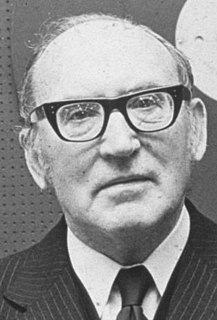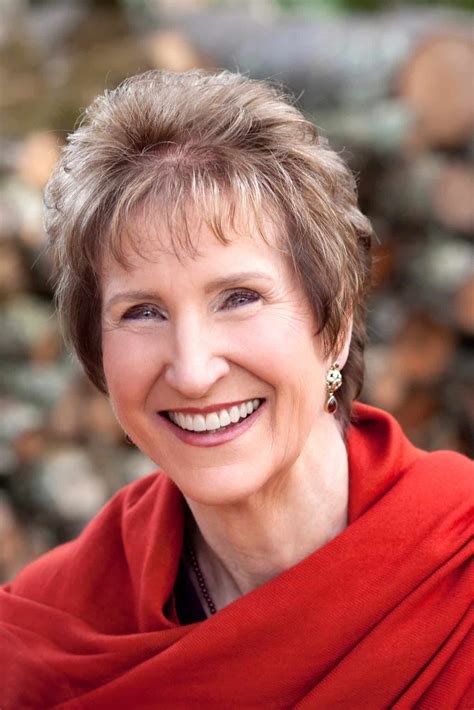A Quote by Edsger Dijkstra
It used to be the program's purpose to instruct our computers; it became the computer's purpose to execute our programs.
Related Quotes
One of my optimistic prophecies is based on the assumption that machines could have the best algorithms in the universe, but it will never have purpose. And the problem for us to explain purpose to a machine is because we don't know what our purpose is. We have the purpose, but we still ... When we look at this global picture, a universal picture, to understand what is our purpose being here on this planet? We don't know.
Until I reached my late teens, there was not enough money for luxuries - a holiday, a car, or a computer. I learned how to program a computer, in fact, by reading a book. I used to write down programs in a notebook and a few years later when we were able to buy a computer, I typed in my programs to see if they worked. They did. I was lucky.
Professor Wilkes is best known as the builder and designer of the EDSAC, the first computer with an internally stored program. Built in 1949, the EDSAC used a mercury delay line memory. He is also known as the author, with Wheeler and Gill, of a volume on "Preparation of Programs for Electronic Digital Computers" in 1951, in which program libraries were effectively introduced.
You are not an accident. Your parents may not have planned you, but God did. He wanted you alive and created you for a purpose. Focusing on yourself will never reveal your real purpose. You were made by God and for God, and until you understand that, life will never make sense. Only in God do we discover our origin, our identity, our meaning, our purpose, our significance and our destiny.
A great purposelessness has descended upon modern civilizations. People at large have lost any sense of the meaning and purpose of life; and without an understanding of our own purpose, there can be no true commitment. Whether that commitment is to marriage, family, study, work, God, relationships, or the simple resolutions of our lives, it will be almost impossible to fulfill without a clear and practical understanding of our purpose. Commitment and purpose go hand in hand.
In previous generations, there was purpose; you had to die, but there was God, and literature and culture would go on. Now, there is no God, and our species is imminently doomed, so there is no purpose. We get up, raise families, have bank accounts, fix our teeth and everything else. But really, there is utterly no purpose except to be alive.
No matter what our job is, we view it not as our purpose in life but rather as where God has sovereignly placed us for the purpose of making Christ known and his name great. If you are a teacher, if you are a politician, if you are a businessman, if you are in agriculture, if you are in construction, if you are in technology, if you are in the arts, then you should not be saying, ‘I need to find my life’s purpose in this work,’ but rather, ‘I need to bring God’s purpose to this work.’
God is at the tip of our scalpels, our screwdrivers, our computer terminals, our dust rags, our vacuum cleaners, our pencils and pens. He is with us in our wheelchairs, or on our hospital beds, when all we can do is sit or lie flat. When we envision Him and His purpose in what we do, then we begin to grow aware of His presence in the middle of it. We are able to engage in our inward conversation with Him as we work, naturally, without strain. He becomes our partner, our collaborator.
I love coaching football, and winning a Super Bowl was a goal I've had for a long time. But it has never been my purpose in life. My purpose in life is simply to glorify God. We have to be careful that we don't let the pursuit of our life's goals, no matter how important they seem, cause us to lose sight of our purpose. I coach football. But the good I can do to glorify God along the way is my real purpose.





































